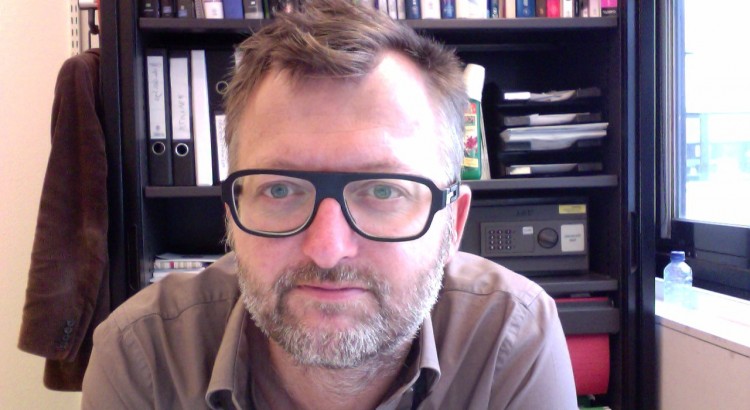Bas Teusink is Professor in Systems Bioinformatics, IBIVU, VU University Amsterdam and Head of the Systems Bioinformatics group.
Can you summarise your career path?
I studied (bio)chemistry at the University of Amsterdam. During my PhD I have studied the dynamics of glycolysis in yeast and learned to appreciate the explanatory power of mathematical models and the need for rigorous, quantitative biology, to come to grips with biological complexity. Using systems biology approaches to understand the design principles of molecular networks, metabolism in particular, has been the focus of my research ever since. In 1999 I switched to biomedical research to study energy metabolism in mice, but moved back to microbiology to be able to be more quantitative. I moved to Amsterdam in 2008 to become professor in Systems biology and integrative bioinformatics.
Where do your best ideas emerge from?
From interactions and discussion with colleagues and students.
Who or what had or has had the strongest positive influence on your career and work?
During my training as PhD I have been lucky enough to be supervised by Hans Westerhoff who introduced me to the -at the time- rather intimate field of BioThermoKinetics, nowadays called systems biology. Especially the courses taught by Jannie Hofmeyr on Metabolic Control Analysis have had a lasting imprinting on the way I think about metabolism. I still teach it today.
What do you consider the greatest challenge or hurdle for progress in your field?
The education of (medical) biologists in a much more quantitative way, with a system’s perspective. This requires that current teachers move away from their tendency to teach facts and qualitative concepts rather than quantitative principles and modelling.
What are, in your opinion, the opportunities, directions or decisions that are vital to progress systems medicine?
Agreement on standards and a better organisation of the field, with one vision and with a lack of the current focus on output-financing, which assures that each lab, and each PhD student, is in constant war with the rate-race that science has become. The fragmented way science is funded, and the sheer complexity of the biomedical problems, causes the current situation that most labs are better of scoring high-impact papers than actually trying to solve the problems. The field should unite and get better organised. It would make a huge difference.
Tell us what would have to happen in your work for you to say “A dream has come true!”?
There is not one dream I have, I enjoy every little puzzle that we solve, every paper that is accepted, every PhD student that grows and graduates, every light bulb that appears above a student’s head.
If you could not be a scientist, what would you like to be?
Mmm, I enjoy cooking a lot so own a restaurant perhaps, or being an architect. Both professions require a similar mix of creativity and techniques that I enjoy.
What was your greatest experience as a scientist?
A eureka moment while reading a paper at home when everybody was on strike (I was a visitor in Manchester at the time), when I realized that the upper and lower part of glycolysis can be imbalanced. It has led to a number of further studies and breakthroughs, such as the one reported last year in Science.
With which historical person, politicians or celebrity would you like to have a dinner and discuss your work?
President Obama
Would you be happy to share something about your private life and activities in your spare time?
I really enjoy to cook in the weekend, I dance the Argentinian tango and have a wife and three sons (16, 14, 10).
